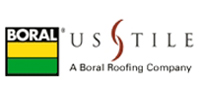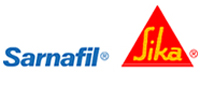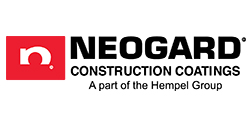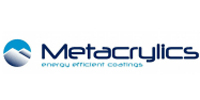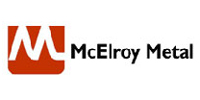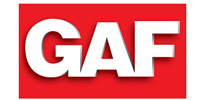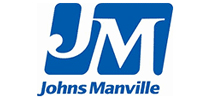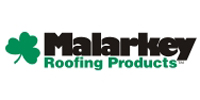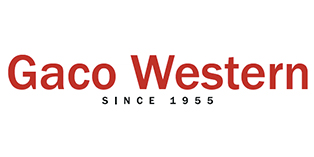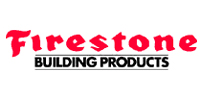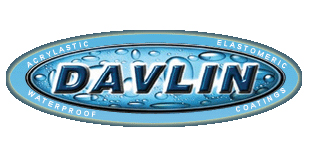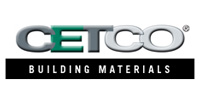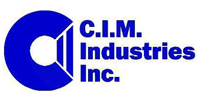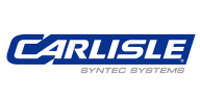Frequently Asked Questions
Got Questions? We’ve Got Answers!
Roofing is one of the industries where questions can sometimes outweigh answers. This is especially the case when dealing with any amateur or fly-by-night operations. So, the first thing you should look for when dealing with a roofing contractor is their willingness to discuss the work and their recommendations with you. Any reputable contractor will want you to understand what’s under discussion and should have no issue with any questions you may have. Below, we’ve detailed some of the more common questions we get about asphalt shingles, flat roofs, and commercial roofing jobs. If you don’t see your particular question, feel free to contact us at (312) 667-4440 and one of our helpful, friendly staff will do their best to provide you with answers.
While there are no definitive guidelines for identifying a good contractor from a bad one, you can use the estimates provided to learn a good deal about their practices. This information may be just the differentiation you need to separate the good from the bad. A good contractor’s estimate should include all of the following:
- Type, color & manufacturer of roofing material
- All materials to be included in the project (underlayment, protective membranes, etc.)
- Scope of work to be completed
- Plan for existing roof – removal or replacement
- Plan for flashing – reuse, new, type of material
- Ventilation work to be completed
- Identifies party responsible for repairing or replacing exterior landscaping or interior finishing damaged during roof work
- Specific installation method
- Targeted start & completion dates
- Payment methods accepted
- Warranty specifications
One of the best ways to determine whether or not a contractor is legitimate is through their pricing. If you get an estimate from one that is far lower than the others, often it’s due to their lack of insurance, licensing, or bonding. Worse still, they have none of the above. It’s a good idea to avoid the extremely low estimates altogether, but, if you’re determined to get a low price, ask the contractor for an item by item breakdown of their estimate. If they can fully explain it, then you may have found the deal of the century. Yet, it’s still a good idea to be very cautious. Making a mistake with your roofing can be very costly to remedy.
When dealing with roofing and roofing systems, it’s important to differentiate the warranties involved. The asphalt shingles used in your project will come with a manufacturer’s warranty that covers any and all defects in the product due to a manufacturing defect. Usually, these warranties are for the lifetime of the product, or at least a period of 20 years or more. Your contractor should give you a certificate upon completion that details this warranty. They will also offer their own warranty that covers their work on your project. This warranty can be for whatever term they choose, but most are normally at least one year from the date of completion.
Underlayment’s primary enemy isn’t time it’s exposure to the elements. Once it gets wet, wrinkling and buckling are inevitable. If they become too severe, the underlayment will have to be removed and a new one put down before any shingles can be attached.
This is an important question, and one you should think of before you sign any contract. You’re having work done to the covering of your interior. Any time this is being done, you run a risk of moisture making its way into your home. You must ensure this very circumstance is clearly defined in any contract you sign. Make sure that everything that can be covered in the contract is covered. If unsure, ask the contractor specifically before agreement is reached.
Yes and no. Flashing is only included in installation if the contract includes it in the scope of work to be completed. If you signed a contract that did not specify new flashing, the contractor is within their rights to reuse the old flashing. This is why it’s so important to read and understand anything before you sign it.
One of the benefits to working with an experienced, reputable roofing contractor is the knowledge of materials and rooftops they bring to the table. There are two separate categories of asphalt shingle and the professional can match the right shingle to the specifics of your roof. This can mean the difference between a lifetime of worry-free performance and costly repairs year after year.
The National Roofing Contractors Association (NRCA) recommends that galvanized steel nails be used in shingle installation. It’s always a good idea, if uncertain, to check your local building codes and the manufacturer’s recommendations before allowing a contractor to make a unilateral decision about something so intrinsic to the process.
The best way to prevent ice dam formation is through regular snow removal services from a company like Chicago Flat Roof Company. Roofs can be steep and dangerous when covered in snow and ice – not to mention you could do more damage than good anyway. If you have an ice dam that has formed, it’s never a good idea to try to use a hose to remove it. This will cause more problems and could seriously injure someone if it causes a massive failure. Call a professional to come and take care of it. They have the tools and the techniques needed to remove the ice dam without damaging your property
The best method for do-it-yourself shingle cleaning is by mixing a mild solution of chlorine bleach and water, or using a mild detergent, and applying it gently to the affected areas with a sponge or handheld sprayer. Once coated with solution, rinse your asphalt shingles thoroughly with water until all the residue is washed away. Do not use a high-pressure water system. Do not use high concentrations of bleach. Do not scrub the shingles.
Flat roofing is a different ballgame than traditional pitched residential roofing. From the materials to the installation procedures, everything is different – including the expertise needed. In flat roofing, the installers’ skill is just as important as the roofing material you choose. Poor installation leads to pooling of moisture that inevitably causes leaking. You also need to think about biannual roof maintenance when you have a flat roof. This can help you avoid costly repairs down the road.
Most commercial and industrial roofing is expected to last somewhere between 10 to 30 years – depending upon the environmental factors at play. 15 years is a good average for commercial flat roofing in Chicago and Northwest Indiana. With proper inspections and maintenance, a commercial flat roof’s lifetime can be greatly extended.
While this question has no definitive answer, Chicago Flat Roof Company has more than 15 years of experience working with commercial and industrial clients in and around Chicago. In all those years, we’ve become the area’s leading experts on what materials and systems work best for particular types of structures. Our expertise gives us the knowledge needed to recommend multiple options to each client that take both their structure’s needs and their budgetary restrictions into account.
Responsible property owners know that any roofing requires maintenance to stay in peak working condition. Flat roofing is no different. It should be checked regularly for overall integrity and any issues discovered should be repaired as quickly as possible. This proactive, preventative approach can keep small things from becoming large ones, so scheduling inspections and maintenance biannually or even annually can help avoid the pitfalls of major restoration or replacement.
No. Flat roofing needs to have a slope implemented during the installation process. This slope facilitates the runoff of water from the rooftop. Without the proper slope, water will pool and, eventually, moisture will make its way into the structure. Sloping of the roof is so important that many manufacturers’ warranties are dependent upon it being present.
While this question is impossible to answer without seeing the roof leak in question, it’s safe to say that most leaking roofs do not need to be entirely replaced. Hiring a professional roofing contractor for repairs is the best thing to do. They should be able to inspect the leak and offer a solution far less radical than replacement of the entire system.
Working with an experienced roofing contractor means any time of year is a good time for roof replacement. They will be able to advise you on the best times in your specific area. While most materials have no temperature barriers to application, there are certain times of year when inclement weather and subzero temperatures are more common. Having your project planned to avoid those times is the best option, but roofing issues don’t wait for the best time to occur, so call a professional like Chicago Flat Roof Company as soon as you feel the need.
Yes. White roofing systems reflect sunlight. This reflective property can reduce temperatures by as much as 20%. This temperature reduction is passed on to the interior of your structure greatly reducing your cooling costs. Chicago is moving toward requirements for white roofing systems in an attempt to counteract the immense heating caused by asphalt and concrete.
Roof inspections are the number one way property owners identify problems and the best way we have to showcase our expertise for a potential client. Each of our technicians is highly-trained and brings with them years of experience in Chicago area roofing. All of our Chicago Flat Roof Company’s inspections include the following:
- Accurate measurements of roof and wall areas
- Determination of roof type and manufacturer
- Roof system cross-section taken to determine composition, attachment, and deck construction
- Overall roof condition and life expectancy assessment
- Evaluation of slope and drainage
- Listing of observable roof and deck defects
- Report signs of leaking
- Photo documentation of all of the above
- Recommendations for repairs, maintenance, or replacement
We serve all of the following areas – Schaumburg, Joliet, Naperville, Evanston, Des Plaines, Oak Brook, Wheaton, Addison, Lincoln Park, Logan Square, Humboldt Park, Wicker Park, Northbrook, Cicero, Oak Lawn, Barrington, Bensenville, Elmhurst, Norridge, Wheeling, Northlake, Skokie, Elgin, Hillside
The Best Prices, Finest Service & All-Around Nice People – Call Today (312) 667-4440
Your property, whether it’s a home or business, stands as the single biggest investment for most people. Protecting it and using only the best service professionals and industry-leading products is integral to the long-term success of your roofing system. Our expert technicians are cross-trained in a wide range of disciplines to ensure they deliver the finest work and friendliest customer service. Each has training in the following:
- Roof Inspections
- Roof Construction
- Roof Repairs
- Roof Maintenance
- Snow Removal
- 24/7 Emergency Response
Award-winning roofing services are what we’re most widely-known for, but that’s far from the only thing we do. In fact, we handle quite a range of home-based services including:
Why should you choose Chicago Flat Roof Company for all of your roofing needs in Chicagoland? Why should you put your trust, your faith, and your property in our hands? Well, for starters, we have the best people and the finest products. Here are just a few of the systems we specialize in:
- Built-Up Roofing
- Cool Roof Coatings
- EPDM Roofing
- Fluid-Applied Membranes
- Metal Roofing
- Modified Bitumen
- TPO Roofing
Anywhere Within 50 Miles of Chicago
Proudly Serving the Following Areas:
Addison | Alsip | Arlington Heights | Barrington | Bartlett | Bedford Park | Bellwood | Bensenville | Berkeley | Berwyn | Blue Island | Bolingbrook | Bridgeview | Broadview | Brookfield | Buffalo Grove | Burbank | Burnham | Burr Ridge | Calumet City | Calumet Park | Chicagoland | Chicago Heights | Chicago Ridge | Cicero | Country Club Hills | Countryside | Crestwood | Deer Park | Deerfield | Des Plaines | Dixmoor | Dolton | East Dundee | East Hazel Crest | Elgin | Elk Grove Village | Elmhurst | Elmwood Park | Evanston | Evergreen Park | Flossmoor | Ford Heights | Forest Park | Forest View | Frankfort | Franklin Park | Glencoe | Glenview | Glenwood | Golf | Harvey | Harwood Heights | Hazel Crest | Hickory Hills | Hillside | Hinsdale | Hodgkins | Hoffman Estates | Hometown | Homewood | Humboldt Park | Indian Head Park | Inverness | Joliet | Justice | Kenilworth | La Grange | La Grange Park | Lansing | Lemont | Lincoln Park | Lincolnwood | Logan Square | Lynwood | Lyons | Markham | Matteson | Maywood | McCook | Melrose Park | Merrionette Park | Midlothian | Morton Grove | Mount Prospect | Naperville | Niles | Norridge | North Riverside | Northbrook | Northfield | Northlake | Oak Brook | Oak Forest | Oak Lawn | Oak Park | Olympia Fields | Orland Hills | Orland Park | Palatine | Palos Heights | Palos Hills | Palos Park | Park Ridge | Prospect Heights | Richton Park | River Forest | River Grove | Riverdale | Riverside | Robbins | Rolling Meadow | Roselle | Rosemont | Schaumburg | Schiller Park | Skokie | Stickney | Stone Park | Streamwood | Summit | Thornton | Tinley Park | University Park | Waukegan | Westchester | Western Springs | Wheaton | Wheeling | Wicker Park | Willow Springs | Wilmette | Winnetka | Woodridge | Worth

